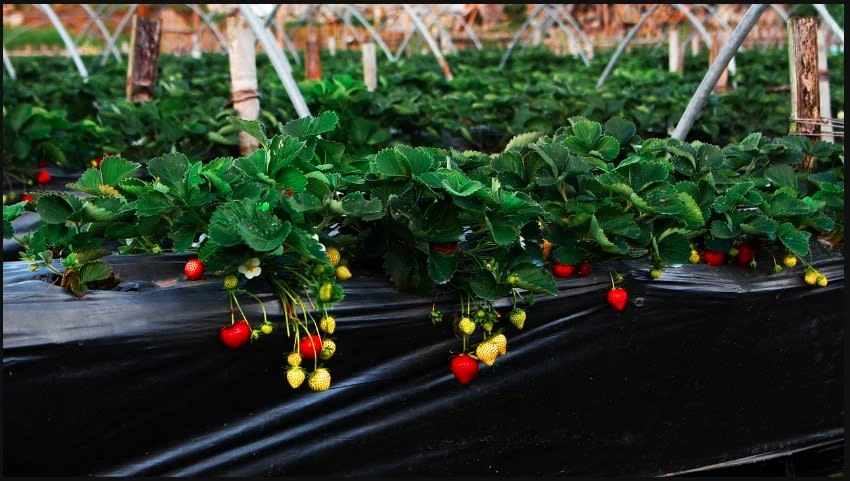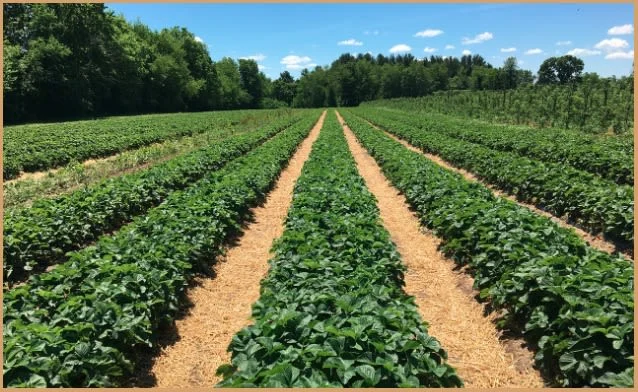How Sustainable Farming Affects the Farmer and the Consumer

Sustainable agriculture has environmental, economic, and social impacts and benefits for farmers, consumers, and the rest of the world. Farmers who practice sustainable agriculture can protect their livelihoods by preserving and optimizing farmlands while expanding natural resources. Sustainable practices also increase food production and support the long-term sustainability of food sources, creating better lives for farmers and consumers. Here’s a look at how sustainable farming practices affect farmers, consumers, and local economies:
Resource Conservation and Preservation
Sustainability programs are aimed at conserving and preserving the natural resources farmers rely on to produce food. Farmers can create organic farms to reduce their reliance on chemical herbicides, pesticides, and fertilizers. Practices like hand weeding reduce the need for herbicide, while mechanical bug vacuums such up the harmful insects minimize pesticide use. Farmers can also introduce beneficial bacteria to combat pests and fish emulsions to replace chemical fertilizers. Reducing chemical use in farms helps to preserve the environment.
Conservation practices like drip irrigation also help to reduce resource wastage. Drip irrigation helps to deliver water directly to the root, giving the plant a better chance of absorbing the nourishment. Farmers also use plastic mulch to prevent direct evaporation from the soil. The mulch absorbs the sun's energy and stays warm at night, enabling young plants to establish faster. A warmer top layer also helps to control pests and soil-based pathogens. Sustainable farming helps to conserve and preserve resources so farmers can maintain food production.
Socio-economic and Environmental Benefits
Sustainable agricultural practices have socio-economic benefits for farmers and customers alike. The practices encourage social equity and help to create equitable food systems. Agricultural harvests from sustainable practices are more reliable and adaptable, giving consumers consistent access to affordable food regardless of the economic situation. Farmers can operate within local communities while protecting their agricultural lands from chemicals and damaging practices. Sustainable approaches preserve soil health and water quality.
Small-scale and large-scale farmers can implement sustainable agriculture to produce more food using fewer resources. Sustainability helps to create stronger local economies by reducing the inputs required to grow food while addressing problems in traditional farming practices. Farmers can use sustainable agriculture to prevent economic losses caused by droughts, floods, and other natural disasters. The farms create direct employment for growers, shippers, and processors and jobs in manufacturing, distribution, research, education, and other sectors.
Better Food Security Moving Forward

With the global population projected to exceed 9.7 billion by 2050, the emphasis is on sustainable food production and alternative sources. Sustainable agriculture positively impacts food security as it preserves soil fertility, conserves water, and optimizes yields from farm lands. Farmers can produce food more efficiently while mitigating the effects climate change has on crop yields. Sustainability practices create stable food systems to meet the global demand for food without depleting the natural resources required to produce the crops.
People and ecosystems can thrive through sustainable agriculture, emphasizing conservative food production approaches for present and future generations. Sustainable farms are multi-generational assets that can feed communities for years while protecting the environment and its natural biodiversity. Farmers practicing sustainable agriculture can help fight food scarcity and resolve the hunger problems in their communities. Food from organic farms is also healthier as it features fewer pesticides, herbicides, and chemical fertilizers.
More Sustainable Farming Benefits
Sustainability practices can protect farming lands, increase crop yields, and improve living standards for local communities. Increased income from farming and the industries around it also open opportunities for better education, innovation, and economic development. In California, hundreds of farmers produce the majority of U.S. grown strawberries using an insignificant fraction of the state’s agricultural land. Find out more benefits of sustainable farming and how California strawberry growers use it to serve most of the country.
Like this project
Posted Dec 28, 2023
An overview of sustainable farming practices among CA strawberry farmers








